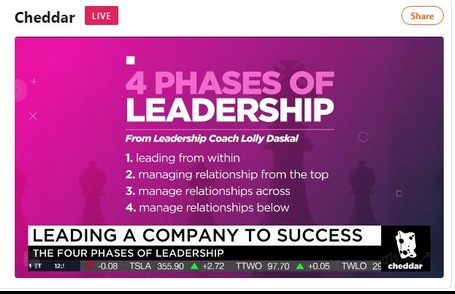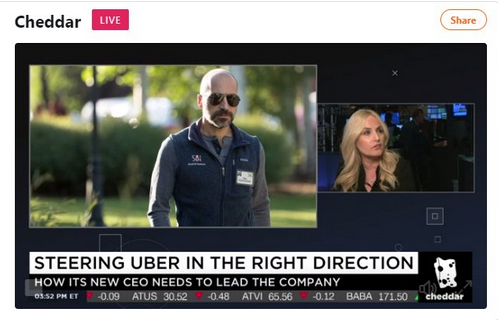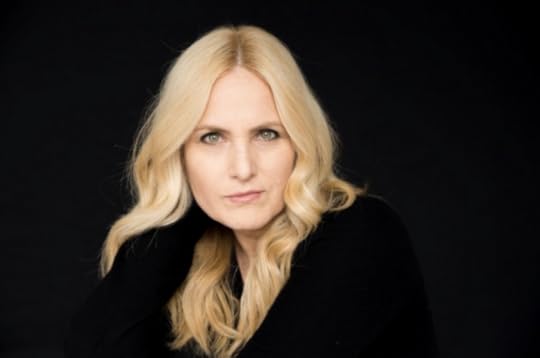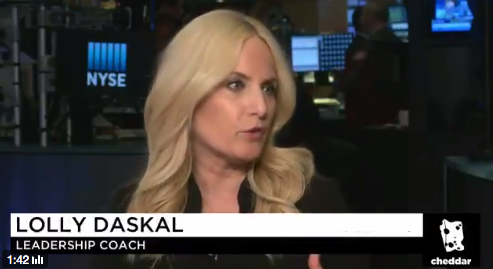Lolly Daskal's Blog, page 100
September 12, 2017
Why Everyone Should See Themselves as A Leader

The other day I was talking with a friend about leadership and I was saying that everyone is a leader, and he replied with a question, “What about people who don’t think of themselves as a leader?”
It was an interesting question- because for me- anyone who wants to make a difference and ends up making an impact with someone – somewhere.
Is a leader.
I’ve seen great leadership across the spectrum: in CEOs and entry-level employees, politicians and middle schoolers, clergy and people living on the street.
Many people believe that leadership comes only with a formal role or position. But as a leadership coach, I believe we’re all leaders.
Leadership doesn’t have to mean acquiring power or trying to change the world. It can be as simple as the daily acts we carry out living our lives—helping a neighbor, listening to a friend, standing up for a principle that’s important.
The difference between being a leader or not is being the person who claims it. Here are four ways you can begin claiming your own leadership tod
Believe you have something to offer. Leadership starts with how you see yourself—in particular, with the belief that you have something to offer to the world. That doesn’t mean you have to take on trying to change the world, but it means that as an individual you know you have something to offer, that you can reach other individuals and have a positive influence.
Dedicate yourself to making a difference. You have been given a life unlike any other. No one else is who you are, and your life will never be lived by anyone else, but the significance and direction of that life are largely up to you. Whether you’re young or old, you can make a difference for the good. Speaking a kind word, volunteering time, fundraising or donating for nonprofit organizations supporting things you feel strongly about—the ways to make a difference are limitless. Remember that each of us was born with a purpose.
Be sensitive to issues impacting others. If you aren’t already tuned in to your own sensitivity to others, the natural empathy we all have within us, start listening—not just superficially, but in a way that takes in people’s circumstances and state of being. Anyone can be a powerful leader if they’re prepared to hear and understand the emotions, fears, and hopes that underlie the words and actions of other people. When you do, you create the connections that are at the heart of great leadership.
Make the move. At the end of the day, only action produces results. Building relationships, developing others and making decisions are all important, but it is the actions that you take that will build your reputation as a great leader. Successful leaders have the courage to take action while other hesitate. Don’t just notice, don’t just discuss: get up and do something. If your actions inspire others to do the same—to dream more, learn more, and above all do more—you are a leader.
Lead from within: You are a leader if you make others better as a result of your presence. And when you do, you’ll continue to influence them long after you are gone.
Learn more about leadership in my National Bestseller book:
The Leadership Gap: What Gets Between You and Your Greatness
After decades of coaching powerful executives around the world, Lolly Daskal has observed that leaders rise to their positions relying on a specific set of values and traits. But in time, every executive reaches a point when their performance suffers and failure persists. Very few understand why or how to prevent it.
buy now
Additional Reading you might enjoy:
The Remarkable Power of the Truth Teller
The Test Every Great Leader Must Pass
12 of The Most Common Lies Leaders Tell Themselves
4 Proven Reasons Why Intuitive Leaders Make Great Leaders
The One Quality Every Leader Needs To Succeed
The Deception Trap of Leadership
Photo Credit: Getty Images
The post Why Everyone Should See Themselves as A Leader appeared first on Lolly Daskal.
September 1, 2017
UBER CEO CAN SAVE THE DAY Lolly Daskal on #CheddarLive
If Dara Khorowshahi accepts the position he will face a long list of challenges but if he wants to succeed he will have to concentrate on these four levels

Watch and Listen to Lolly’s segment on CHEDDARlive < click link

The post UBER CEO CAN SAVE THE DAY Lolly Daskal on #CheddarLive appeared first on Lolly Daskal.
August 29, 2017
How to Best Navigate When It Comes to Leadership
 We’ve suffered far too much bad leadership in recent years. Many who call themselves leaders and hold leadership positions have conducted themselves like people who can’t find their own way, let alone lead others.
We’ve suffered far too much bad leadership in recent years. Many who call themselves leaders and hold leadership positions have conducted themselves like people who can’t find their own way, let alone lead others.
That’s why we are looking for a kind of leader—one we can respect, one we trust and want to follow.
The kind of leadership we’re looking for, like all great leadership, is grounded in character. But how do leaders use that character to navigate through situations and circumstances?
They follow their North Star.
Just as it did for long-ago navigators, the North Star guides them through rough terrain and dark nights. The leader who knows their North Star knows where they are going, how they will get there and what they need along the way.
To find your North Star, start here:
Identify your moral inner compass. Your values are the chief guide of your leadership—the moral compass that will help you keep steering toward the things that matter. Without it, it’s easy to drift off course, but when you are centered in your moral inner compass you can translate pressure into success and success into meaning.
Understand that you may wander off the path. Sometimes leaders get pulled off course into thinking that power is more important than people or that profit is more important than mission. This kind of thinking is a sure indicator that they’re losing their way—probably as a result of fear or insecurity. If you begin to feel lost, don’t despair but lock back onto your North Star and find your way back.
Know your whole self. As a leader and a person, you need to know not only your sweet spots and strengths but also your blind spots and weaknesses. Own all of who you are. Once you’ve accepted your flaws, no one can use them against you.
Stay grounded by acting on character. Character is the heart of every valid leadership navigation system. To lack character is to lack the capacity to lead, and capacity without character is dangerous. Your character is defined by your own moral and mental attitude. What makes you feel connected to your true self? When you know who you are, people can trust you.
Act like a good follower to be a great leader. Many people think that being a leader means constantly fixing, supporting and coaching, but the true essence of a great leader lies in stepping back and listening, understanding, learning. You cannot be a leader and ask other people to follow you unless you know how to follow too. As a follower and a leader, be strong and kind, bold and proud.
Lead from within: It’s in learning how to navigate that you will find your own North Star to help you, guide you, support you and teach you what it means to be a great leader.
Learn more about your leadership in my National Bestseller book:
The Leadership Gap: What Gets Between You and Your Greatness
After decades of coaching powerful executives around the world, Lolly Daskal has observed that leaders rise to their positions relying on a specific set of values and traits. But in time, every executive reaches a point when their performance suffers and failure persists. Very few understand why or how to prevent it.
buy now
Additional Reading you might enjoy:
The Remarkable Power of the Truth Teller
The Test Every Great Leader Must Pass
12 of The Most Common Lies Leaders Tell Themselves
4 Proven Reasons Why Intuitive Leaders Make Great Leaders
The One Quality Every Leader Needs To Succeed
The Deception Trap of Leadership
It’s True You Can’t Do It All
Photo Credit: Getty Images
The post How to Best Navigate When It Comes to Leadership appeared first on Lolly Daskal.
August 22, 2017
It’s True — You Can’t Do It All
 It can be hard to be a leader in today’s hurried business climate. People seem to expect a leader to know everything, be everything and do everything, all at the same time.
It can be hard to be a leader in today’s hurried business climate. People seem to expect a leader to know everything, be everything and do everything, all at the same time.
But even if you can, that doesn’t mean you should.
Great leaders know that deciding what not to do is as important as deciding what to do.
Most leaders executives, bosses, managers run into trouble when they think they need fix it all, but frankly that’s impossible.
In my new national bestselling book, The Leadership Gap, I highlight a big problem in leadership, the archetype, the leader I call the fixer, the fixer, is someone who needs to step in all the time and show they can do it all. they are constantly telling people what to do and how to do it without even waiting to see if people understand what they are saying or asking of
So how do we leverage the fixer within ourselves:
We need to fix the fixer: Before we can fix anyone, or anything we need to fix ourselves. Hire a coach or get a mentor, to help you get over the fact that you have to be the martyr, savor, of everyone and everything. deal with your inner demons. whatever they maybe, this may be the hardest part of healing yourself, its much easier said than done, because as human beings we are complicated and as a fixer we want to simplify everything.
Trust people to fend for themselves: As a leader helping other, you don’t allow them to fend for themselves, instead of always offering to rescue, solve, comfort, or defend. Learn to become a better listener than a leader who does a lot of talking. Become the kind of leader that’s compassionate and considerate, but don’t offer to take over someone else’s problems in order to make those problems go away. The best leaders empower others by just being there for them and listen with understanding.
Don’t cross boundaries: How many times have you found yourself in situations and you ask yourself how did I get in so deep, I don’t even belong here. don’t allow yourself as a leader to get swallowed up in other people challenges or complications,
Shield yourself from emotional hostage syndrome. Many years ago, I coined the phrase emotional hostage syndrome, when I started to notice some of my clients that I was coaching were feeling the things for another so strongly that they become hostage of their emotions. When you cannot separate yourself from another you lose perspective. In order to make sure you don’t lose perspective or a point of reference make sure you come from the right amount of apathy with a dash of empathy. Resist the urge to take on responsibility, where the responsibility belongs in the first place.
If you have a tendency to be a fixer, a problem solver, resolver, decipher or decoder. I am saying you think about taking one little step back – will you still be the leader?
The answer unequivocally is YES.
People will still view you as leader. Maybe even with more respect than if you always were fixing their problems, solving their challenges.
The best leader give the gift in others in trusting them and empowering them to solve their own problems, but letting them know that as leader you are standing right beside them and supporting them if they need you.
John Quincy Adams said, if your actions inspire others to dream more, learn more, do more and become more you are a leader.
Lead from within: At the end the best leaders don’t tell people how to do things, they support them and let them surprise you with their results. Because as a leader its not necessarily the one who does the greatest things but it’s the one who gets the people to do the greatest things that is a great leader.
Learn how to leverage the fixer within you in my National Bestseller book:
The Leadership Gap: What Gets Between You and Your Greatness
After decades of coaching powerful executives around the world, Lolly Daskal has observed that leaders rise to their positions relying on a specific set of values and traits. But in time, every executive reaches a point when their performance suffers and failure persists. Very few understand why or how to prevent it.
buy now
Additional Reading you might enjoy:
The Remarkable Power of the Truth Teller
The Test Every Great Leader Must Pass
12 of The Most Common Lies Leaders Tell Themselves
4 Proven Reasons Why Intuitive Leaders Make Great Leaders
The One Quality Every Leader Needs To Succeed
The Deception Trap of Leadership
Photo Credit: Getty Images
The post It’s True — You Can’t Do It All appeared first on Lolly Daskal.
August 8, 2017
The One Time You Should NOT Express Positivity

Optimism and positivity are beneficial to leadership in almost every circumstance. You won’t find many who would dispute that thought.
We know the best kind of leadership requires seeing the glass as half full. We know that even in the most challenging times and difficult circumstances, it’s important to concentrate on what we have rather than what we lack. We understand the importance of gratitude—not just as a response when things are going especially well but as a daily practice. It’s not that happy people are thankful, it’s that thankful people are happy.
We know positive thinking and an optimistic attitude can actually change our reality for the better. In the words of the old adage, “Think good, and it will be good.”
A daily practice of gratitude and positivity can benefit you even when things get so bad that you can’t see a good outcome or any seed of hope. You can assure yourself that even if you can’t currently comprehend it, there’s a lesson or a stubborn thread of grace in there somewhere.
There’s one situation, however, when positivity and gratitude don’t work—when, in fact, they can actually be destructive.
That’s when you try to apply them to others.
It’s understandable, the urge to apply something so helpful to someone who’s hurting. But however well intended, it simply doesn’t work.
A distraught or grieving colleague or client doesn’t want to hear “There must be something good in your life to be grateful for.” Or “It must have been meant to be.” Or “I know you’re disappointed but things work out for the best.”
When someone is suffering, it’s cruel to suggest that it’s all a lesson designed to make them a better person. And it’s downright arrogant for us to tell them this is good for them, or that it’s the way it’s meant to be.
Our job is not to philosophize about another’s pain, but to alleviate, relieve and lessen it.
True leaders know that when they see someone suffering, there’s only one acceptable response. They roll up their sleeves and ask, ‘What can I do to help?
Here are some ways you can be of service to someone who’s hurting:
Listen. One of the most important traits in leadership is the ability to listen. The best leaders, the skillful ones, know the importance of listening more than they speak. It’s especially important to listen to people who are trying to make sense of difficult events.
Show support. If someone’s going through a tough time, the most meaningful thing you can say is I’m here for you. Simple words, but when they’re backed up with action they share a burden—and they reassure the person that they’re not alone.
Convey empathy. Adopting a human approach to your leadership sets an example that helps you build an entire culture of empathetic leaders. People will admire your approach and work harder for you knowing that you respect their personal needs.
Connect with caring. Gone are the days when people expect leaders to sit behind a closed office door and dictate from power. The best leaders today get to know their people on a personal level as well as professionally. They care, and they show that caring by connecting, communicating and demonstrating compassion.
Lead from within: A positive is not the best answer for every situation. As a leader, you need to let each situation involving one of your people bring forth the best of what you have to offer in the terms of how you listen, how you support, how you care and how you connect.
Learn more about the gaps that exist in positivity in my National Bestseller book:
The Leadership Gap: What Gets Between You and Your Greatness
After decades of coaching powerful executives around the world, Lolly Daskal has observed that leaders rise to their positions relying on a specific set of values and traits. But in time, every executive reaches a point when their performance suffers and failure persists. Very few understand why or how to prevent it.
buy now
Additional Reading you might enjoy:
The Remarkable Power of the Truth Teller
The Test Every Great Leader Must Pass
12 of The Most Common Lies Leaders Tell Themselves
4 Proven Reasons Why Intuitive Leaders Make Great Leaders
The One Quality Every Leader Needs To Succeed
The Deception Trap of Leadership
Photo Credit: Getty Images
The post The One Time You Should NOT Express Positivity appeared first on Lolly Daskal.
August 7, 2017
Fun With Joel Comm and Lolly Daskal

Joel is the self-confessed ‘dumbest person in the room’ with today’s guest, author, and speaker, writer Lolly Daskal. Joel brings out Lolly’s inner girl and discusses her obsession for books and reading at least one book per day, sometimes before breakfast Joel discussed Lolly’s latest book: Leadership Gap – What Gets Between you and Greatness, and find out why this leadership book is different to others and how you can leverage a weakness into strength.

LISTEN BELOW
Find Lolly on her website
Read Lolly’s latest book: The Leadership Gap Book : What gets Between You and Your Greatness
The post Fun With Joel Comm and Lolly Daskal appeared first on Lolly Daskal.
August 1, 2017
Here’s Why You Can’t Afford to Just Stand By And Watch
 We are living in difficult times, with dysfunction and great disruption seemingly at every turn.
We are living in difficult times, with dysfunction and great disruption seemingly at every turn.
But there’s something to be learned in any situation. And our times now are asking us some important questions:
Why we don’t have better leadership?
Why is it we have leaders that disappoint and dissatisfy us?
Why do we allow this to happen?
An important part of the answer to these questions is this: We have become a society of bystanders.
Bystanders don’t get involved. They stand by—exactly as the name says—and watch without helping.
Bystanders see something but do nothing; they hear something but say nothing.
Bystanders are created by fear.
If you are acting out of fear you cannot be brave, and if you are acting out of passivity you cannot be courageous.
It’s when we feel most powerless, when we feel nothing we can do will change the status quo, that we need to challenge our fear and passivity—to stop being afraid, to leave any passive inclinations behind.
If you think you’re not playing a part in the dysfunction, think again. Anyone who is a bystander—anyone who’s watching without doing anything about the troublesome things they see—is part of the problem.
Ask yourself if any of these traits describe you:
You believe you’re not leadership material. Where are all the men and women who have strong vision and great ideas and are compelled for the greater good? Maybe you’ve let yourself believe you lack the power or the conviction or the skills to lead. If so, you need to start where you are and answer the call. You’ve never been needed more.
You’re suppressing your awareness. It’s easy to become so distressed that all you want to do is disengage. If you’re dismissing the problem by checking out because it’s too much to deal with, you’re resigning yourself to apathy. It’s never made any problem go away—if anything it makes things worse. You can’t help yourself or others by ignoring reality. More than ever before we need leaders who can look squarely at the problems we face.
You’ve stopped meeting the challenges. Suppose our companies, our organizations, our teams, our leaders, became stopped trying to meet our needs. The effects would be terrible. When we’re all facing more and more challenges, it’s tempting to take a break from doing the hard work of turning them around. Remember that you’re pacing yourself for a marathon, not a sprint, so you can maintain a steady effort every day.
You’re scared to stand up for your convictions. To lead others requires integrity, a word whose Latin origins mean wholeness and completeness, and which in turn means consistency of character. You can’t lose your convictions or your courage when you’re fighting for a common purpose, and you can’t deny the truth you see in exchange for security or someone else’s agenda. Strong convictions precede great actions.
It’s our duty not only to meet these standards ourselves but to hold others in leadership to them. When a leader becomes lazy, self-indulgent, deceiving, or corrupt, we have to take action and challenge their power.
Here’s why you can’t afford to just stand by and watch because true leadership is about people: people before policy, people before profits, and people before procedures.
If we allow those we don’t respect to lead and those we don’t trust to have influence, we are acting out of fear and living as bystanders. And that’s not going to cut it anymore.
Leadership at its heart is about we the people, it’s not about a self-serving agenda.
There is a deep cry, a true plea for leadership. We are looking for leaders who will hold themselves accountable—to humanity, to character, to virtue.
If you want to make an impact, there’s no better time. Now is your chance.
There is a gap in our leadership and we need you to fill it. We need to you say something and do something.
We are looking for those who have been bystanders to stop being fearful, to take a chance and challenge the status quo. If you are waiting for permission, here it is. If you are waiting for approval, we approve.
We are looking for you… to lead us with heart.
Lead from Within: Leaders become great not because their power, but becasue of their ability to empower others.
Learn more about the gaps that exist in my National Bestseller book:
The Leadership Gap: What Gets Between You and Your Greatness
After decades of coaching powerful executives around the world, Lolly Daskal has observed that leaders rise to their positions relying on a specific set of values and traits. But in time, every executive reaches a point when their performance suffers and failure persists. Very few understand why or how to prevent it.
buy now
Additional Reading you might enjoy:
The Remarkable Power of the Truth Teller
The Test Every Great Leader Must Pass
12 of The Most Common Lies Leaders Tell Themselves
4 Proven Reasons Why Intuitive Leaders Make Great Leaders
The One Quality Every Leader Needs To Succeed
The Deception Trap of Leadership
Photo Credit: Getty Images
The post Here’s Why You Can’t Afford to Just Stand By And Watch appeared first on Lolly Daskal.
July 21, 2017
CHEDDAR TV: What It Takes To Be A Great Leader
July 18, 2017
The One Quality That Will Make You Into A Great Leader
 Many people have different ideas about what makes great business, great leadership, great influence.
Many people have different ideas about what makes great business, great leadership, great influence.
Some base it on results, profit or success, but after working with top performers and leaders around the world I’ve found that there is one aspect, one trait that makes all the difference in the world.
It’s leading with a conscience.
When you lead with a conscience, you put your values first; doing what’s right goes at the top of the list.
Too often people make the error of mistaking data for wisdom, wealth for competence, logic for intelligence—and in the process values become inconsequential.
But operating without a conscience limits your influence over others, and even over yourself. When you operate without a clearly defined sense of ethics and morality, you will lose respect.
So what can you do to lead with your conscience?
Operate from the inside out. Strong leadership begins with learning your priorities and values—being able to articulate them and walk through their implications. No one can excel or succeed without knowing who they are and what they stand for.
Coordinate your brain, your mouth and your hands. When you’re working to make an impact on the world, people will be constantly evaluating the things you think, say and do. They will be watching you—and trust me, they will notice any inconsistencies between your beliefs, your words and your actions.
Be consistent. It’s easy to stray from your moral compass when you’re distracted, discouraged, disenchanted. But remember that those are the times you need your inner guidance the most—and the times that your example will be the strongest, for good or for ill.
Look for opportunities to exercise your values. Sometimes life and work provide ready-made opportunities to demonstrate your values. The rest of the time, seek them out—and encourage others on your team to do the same. Find appropriate ways to make resources available to causes and organizations that are dear to your team.
Keep everything in alignment. In reality, there’s no bright line between your personal values and your day-to-day work life. Make sure your policies, your expectations of yourself and others, and your support all reflect your individual conscience as much as they do current HR practices.
Close the gaps. There’s nothing worse than being in a place of power and being loud and wrong, brash and harsh, untrusted and destructive. If there’s any trace of such tendencies within yourself, work to close those gaps before they harm you further.
Our everyday behavior at work and at home is where our conscience lies, where our lives begin to matter.
Lead from within: At the end of the day, we don’t want to try to become people who are successful. We want to become people who have a conscience.
Learn more about running great teams in my National Bestseller book:
The Leadership Gap: What Gets Between You and Your Greatness
After decades of coaching powerful executives around the world, Lolly Daskal has observed that leaders rise to their positions relying on a specific set of values and traits. But in time, every executive reaches a point when their performance suffers and failure persists. Very few understand why or how to prevent it.
Daskal has observed that leaders rise to their positions relying on a specific set of values and traits. But in time, every executive reaches a point when their performance suffers and failure persists. Very few understand why or how to prevent it.
Additional Reading you might enjoy:
The Remarkable Power of the Truth Teller
The Test Every Great Leader Must Pass
12 of The Most Common Lies Leaders Tell Themselves
4 Proven Reasons Why Intuitive Leaders Make Great Leaders
The One Quality Every Leader Needs To Succeed
The Deception Trap of Leadership
Photo Credit: Getty Images
The post The One Quality That Will Make You Into A Great Leader appeared first on Lolly Daskal.
July 17, 2017
AXSChat with Lolly Daskal Leadership Coach & CEO of Lead From Within

click below to listen
The post AXSChat with Lolly Daskal Leadership Coach & CEO of Lead From Within appeared first on Lolly Daskal.





